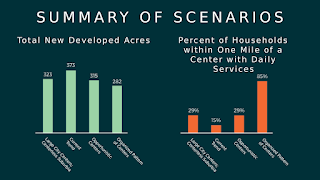What's Coming Up?
COUNCIL WORK MEETING
1:30 PM, Tuesday, July 5th, City Conference Room, 351 West Center- A discussion on the proposed Keeping of Swine ordinance. (16-084)
It is proposed that "Swine shall be confined within a secure outdoor enclosed area located at least three hundred (300) feet from any dwelling." The keeping of swine is not always a complimentary use to residential, as we had so clearly illustrated last year. - A discussion on the Parkway Plaza Potential Redevelopment Area. (16-087)
Some of you may remember when "The Mix" project was announced earlier this year, for the troubled "Plum Tree" shopping center. The developer is asking for assistance with the structured parking for the project. - The funding of utility and infrastructure improvements at the Provo Municipal Airport for Duncan Aviation. (16-085)
In the hopes to persuade a high-tech, high quality aviation company to locate an important operation in Provo, we promised to build some infrastructure to support the operation. Now it's time to pay the piper. I didn't follow all of the documents and possible funding options, and am interested in having my questions answered in the work meeting, but it appears that the deal is only getting sweeter for the City as the operation that Duncan Aviation is bringing is even bigger than originally envisioned. This will add hundreds of high quality jobs to the area. - A discussion on updating the explanatory text for the 2016 Council Priorities. (16-015)
This will be a second look at a proposed refined version of our Council Priority Sheets, which help explain the background and objectives of the nine Priorities selected by the Council this year. - A discussion on Council Committees.(16-088)
I believe this has to do with a proposal to change an assignment on the Development Approval Process Review Committee. But there is no documentation on it yet, so it could entail a broader discussion. - A status update on commercial trampoline gym facilities. (16-089)
There is no documentation on this yet either. A number of local physicians have been alarmed at the number of trauma patients they've seen who have been injured at our local trampoline gyms. Members of the Council have been convening discussions with various stakeholders to address the problem. I suspect this is an update to the rest of the Council on this topic.
COUNCIL MEETING
5:30 PM, Tuesday, July 5th, City Conference Room, 351 West Center- Provo's Bike Challenge Awards
Public Comment - A resolution authorizing execution of the Fifth Amended Interlocal Cooperation Agreement with Utah County relating to the Ice Sheet Authority. (16-080)
Information from the last two "What's Up?"s: "The Agreement was last amended in 2000. There are several changes proposed, perhaps the most important is (from the support documents): "Addition of a section...addressing the method by which either Provo City or Utah County could terminate the Agreement and/or sell their interest in the ISA. (Please note that neither party has expressed a desire to terminate or sell. This section has been added for the mutual benefit of the parties, but also because state law now requires such a section in all interlocal agreements.)" and "This mostly is an update to incorporate new State regulations on interlocal agreements. It also recognizes the current way the facility is being managed. This is not expected to affect the operation of the Ice Sheet." - A resolution authorizing the execution of an Interlocal Cooperation Agreement to authorize Provo City's participation in the Utah Valley Home Consortium in the U.S. Department of Housing and Urban Development's Home Investment Partnerships Program for Federal fiscal years 2017, 2018, and 2019. (16-086)
This would create a consortium between Provo, Orem, Lehi, and Utah County to act as one local body to address the regional low to moderate housing needs. Provo City will act as the lead agency in the consortium. - A presentation on the process for implementing an Urban Deer Control Plan. (15-076)
About a year ago the Council voted to begin the process of implementing an Urban Deer Control Plan to address the "significant damage to landscaping and vegetation on private property 10 and threatening public safety on roadways". This is the next milestone in that process. An ordinance amending Provo City Code Section 14.34.300 (Transitional Development Standards for Uses Abutting Residential Zones) clarifying restrictions on farm animals adjacent to Residential Zones. City-Wide Impact. (16-0006OA)(Item to be Continued to July 19th Council Meeting)An ordinance amending Provo City Code Sections 15.17.030, 15.17.040, 2.29.040 and 14.02.020 to reduce the notice requirements for public hearing before the Planning Commission for General Plan adoption and for General Plan Amendments from 14 to 10 days, as per Utah State Code, and to allow amendments to the General Plan more often than twice per year. City-Wide Impact. (16-0007OA)(Item to be Continued to July 19th Council Meeting)


